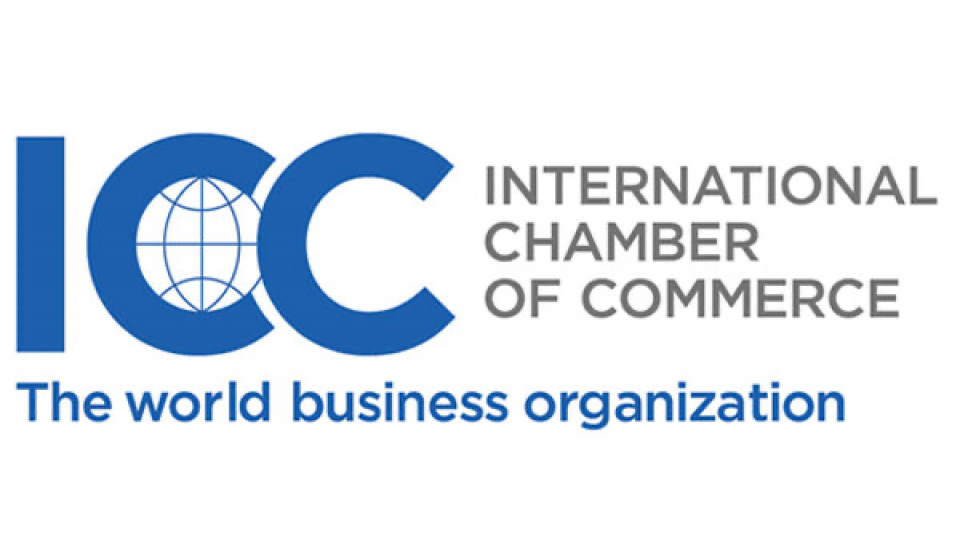Published
- 07:00 am

Integral, a leading FX technology provider, announced today that it has launched the latest version of its next generation trading platform.
Available through HTML5 browser and mobile device, FX Inside 7.0 is a web-based trading solution for banks and institutional brokers wanting to serve corporate and institutional customers in a fully branded single dealer environment.
Configurable workflow tools include tick-by-tick charting, real time blotters, advanced order types, and laddered and full book pricing. The platform supports RFS and ESP trading in spot, outrights and swaps, NDFs, precious metals, and CFDs.
FX Inside 7.0 is built on a ReactJS framework for a responsive design and faster web-browser reaction time. Users also have the option to integrate third-party applications and translate the interface into any language to meet the requirements of a local user base.
Harpal Sandhu, CEO of Integral, said: “In this current environment, it has become evident that institutions need access to a scalable and sophisticated single dealer offering. The latest version of FX Inside provides our clients with a highly customizable interface and allows them to launch bespoke and customer centric trading platforms at significantly lower cost and risk than building in-house.”
Now in its seventh generation, FX Inside supports Integral clients distribute their prices directly to anyone, anywhere in the institutional trading ecosystem. The latest iteration of FX Inside technology has also been deployed across all of Integral’s trading UIs, including those used in the OCX and TrueFX trading environments, so all manual users in the Integral network can benefit from an enhanced trading experience.
Related News
- 07:00 am

Vietnam’s Tien Phong Commercial Joint Stock Bank (TPBank) accelerated their digital transformation with Backbase, a digital-first banking platform, to transform the bank’s traditional products, services and core banking system. Backbase drove the digitization to enable TPBank to operate on a secure, efficient, and sustainable omni-channel digital platform that is agile and scalable as the bank prepares for strong future growth and expansion.
TPBank’s digital transformation has enhanced its value proposition in delivering high quality and digital-first products and services to its customers and partners. With Backbase’s solutions, TPBank has successfully revamped its mobile and Internet banking system, which was in development for the last decade, in just nine months.
The introduction of comprehensive digital banking back-end services from Backbase has enabled TPBank to shorten the time taken to develop new products and accelerate time-to-market, as it only took the bank 10 months to successfully migrate nearly 3 million customers to the new platform. Backbase’s ready-to-go banking with widget collections has also provided TPBank the flexibility to customize their core-independent development, enabling faster digital innovation without the limitations from back-end systems.
Backbase’s solutions have allowed TPBank to transition and operate on an advanced, modern, and highly efficient technology architecture that is future ready to meet the digital-first demands of customers. By using cutting-edge technology that will benefit and transform the lives of Vietnamese community, TPBank envisions a future where digital delivery of its products will lead the way towards the adoption of cashless and digital financial solutions.
Riddhi Dutta, Regional Head for ASEAN and India of Backbase, said: “Legacy channels and outdated core systems are cumbersome and is one of the factors which hinders banks from scaling at a pace that keeps up with evolving customer demands. Without completely overhauling a bank’s core which it has built over decades, Backbase’s breadth of integration mechanisms can support incumbent banks to execute strategic digital transformation projects that are tailored uniquely for them.”
“Now more so than ever, banks need to respond swiftly to greater customer expectations while implementing digital transformation with minimal disruptions to remain competitive in the current marketplace by implementing more efficient business models and delivering superior value to its customers,” said Dutta.
Mr Nguyen Hung, CEO of TPBank, said: “Backbase’s global expertise and extensive range of solutions has allowed TPBank to successfully navigate our digital transformation road map and accelerate the development of our digital banking products services for the next 5 to 10 years. Our digital innovation journey that is being undertaken with Backbase has placed the people at the centre of our digital investment, with technology being the critical driver in transforming our bank and ensuring we stay ahead of the competition in the next digital banking revolution.”
Testament to TPBank’s successful digital transformation, aided by Backbase, the bank was awarded the ‘Best Digital Bank’, ‘Best Branch Innovation’ and ‘Best Savings Account Product” by The Asian Banker Vietnam Country Awards 2020[1] in April 2020.
Related News
- 08:00 am

Ohpen, the first fintech platform to bring a bank to the cloud, today announces its acquisition of cross-border loan and mortgages Software as a Service (SaaS) provider Davinci. The combination of these two growing companies will allow Ohpen to address the $300 billion global bank IT spending market as it targets international expansion.
This acquisition is testament to Ohpen’s commitment to disrupting banking by liberating financial institutions of burdensome legacy software. With the ongoing COVID-19 pandemic rapidly accelerating the shift to digital, the combined entity is set to change the face of finance forever.
The transaction is a pivotal moment for both companies. Easily integrated via a plug-and-play API, Ohpen will become the only cloud-native core banking engine to offer a full suite of products – across savings, investments, loans, mortgages and current accounts.
With 20+ top tier financial institutions as existing customers, Ohpen will support retail banks, asset managers, insurers, building societies, lending & mortgage specialists, online brokers and private banks to build new propositions and migrate complex legacy products into the cloud within a matter of weeks.
It also marks the beginning of Ohpen’s global growth ambitions. Its serverless microservices platform, leveraging shared Amazon Web Services (AWS) capabilities, is already set to support multiple countries seamlessly. Ohpen will focus first on scaling up across the Netherlands, United Kingdom and Belgium with development centres also in Spain and Slovakia, before entering into other markets.
The new entity, built on a foundation of decades of expertise, will have a combined headcount of 350 and $35 million revenue, making it the most serious challenger to legacy technology providers in the financial services sector.
Davinci is recognised for its machine learning and artificial intelligence capabilities, resulting in an unprecedented level of straight-through processing along with fast onboarding and acceptance during the loans and mortgages processes, resulting in cost savings of up to 80%.
This perfectly complements Ohpen’s robust core banking engine. Ohpen is already a market leader in the Netherlands, with Aegon and Volksbank amongst its clients. With a 25% increase to its R&D budget following the acquisition, the new Ohpen proposition and its future innovations are set to be transformative for the wider industry.
Matthijs Aler, CEO at Ohpen, commented: “Businesses like Ohpen and Davinci are the unsung heroes propelling the real shift to digital in the financial services industry. We are a growing company with huge ambitions. Together, we intend to lead the charge in directly challenging incumbent providers with outdated technology. Our mission is – and always has been – to set financial institutions free from legacy software. Now we can help a broader range of financial institutions deliver tangible change to meet the needs of tomorrow’s customers.”
“This is the natural next step on our shared journey to deliver the complete SaaS core banking offering of the future,” added Alwin van Dijk, Director at Davinci. “Our complementary business offerings, and combined company values based on a solid foundation of innovation – we are the only two players with a real focus on back and middle office innovation for new AND existing propositions. Now offering a full range of products – will be a market game changer. There are many opportunities, not only for present and future customers, but also for our experienced staff and we’re excited to see what the future holds.”
Related News

Dmitrii Barbasura
CEO at Salt Edge
Open banking fundamentally changes the landscape of the modern financial sector, stimulating all types of companies to release new services and making traditional banking product see more
- 03:00 am

AlgoTrader partners with Blockfills to provide financial institutions with a secure gateway to the deepest crypto and digital asset liquidity globally. Blockfills is the first electronic communication network model ECN for crypto and digital assets and is made available within AlgoTrader´s recently launched WIRESWARM platform, an advanced crypto and digital asset order management, execution management and multi-venue connectivlty platform for banks.
Despite the intervention of COVID-19 on global financial markets, the crypto and digital asset markets have shown themselves to be a legitimate asset class with increased market capitalization, trading volumes and prices. Due to this current challenging market environment, investors have been searching for resilient alternatives to bolster their investment and savings portfolios, driving the demand for financial institutions to offer trading and custody services.
WIRESWARM’s institutional trading infrastructure offers reliable connectivity to a comprehensive set of trading and execution venues via one single connection. With the addition of the first electronic communication network, Blockfills, AlgoTrader´s WIRESWARM Platform now includes Blockfills’ deep and executable streaming liquidity to place orders, thereby ensuring best execution for their clients.
“Our partnership with AlgoTrader is a further symbol of our goal to work with the highest quality professionals in the digital asset space. Their team has a tremendous and successful background in all things trading tech and we are humbled to be providing our liquidity and best execution practices to a team and technology stack of their caliber," Neil Van Huis, Partner & Director of Trading at Blockfills stated.
“We are proud to partner with Blockfills, who are without equal and are the first leading ECN provider within the crypto and digital asset space. In conjunction with our existing portfolio of available trading and execution venues, Blockfills is filling the blank as the first available ECN with a deep and executable streaming liquidity for our institutional clients,” concludes Andy Flury, CEO & Founder, AlgoTrader.
Related News
- 08:00 am

The Covid-19 pandemic has caused an increase in finance professionals dealing with outstanding invoices from customers, according to nearly half (48%) of respondents surveyed by fintech company, Onguard. In particular, cash flow problems were cited by nearly two-thirds (65%) as being the most common reason why customers are failing to pay on time. This represents an increase of 14% from February when just over half (51%) of invoices went unpaid due to cash flow concerns.
The additional pressures of the Covid-19 crisis have also led over a third of finance professionals (35%) to believe that their organisation lacks the specialist software required for efficient working, with more than half (55%) still relying on programs such as Excel and Numbers for their credit management on a daily basis. Only 35% use specialist credit management software to automate processes, with the remainder relying on ERP systems or not having a dedicated system for debtor management. This lack of technological support may be the reason why, despite mounting unpaid invoices, only 17% of finance professionals are applying a personal touch to these delicate customer issues by calling debtors personally to ensure payment on time.
A clear need for technology
With growing workloads to consider, it’s unsurprising that 70% of finance professionals believe there is now a greater need for digital transformation due to the pandemic. Meanwhile, almost two-thirds (65%) believe the coronavirus crisis has accelerated any transformation that was already underway.
Marieke Saeij, CEO, Onguard, said: “It is striking that not even a fifth of finance professionals seek contact with customers who pay outstanding invoices too late or not at all, especially since cash flow problems are the main cause of customers defaulting on invoices. However, while these issues are often best solved with personal contact, we understand this isn’t always possible due to lack of time. Therefore, an efficient and automated debtor process would be beneficial.
“We can see that there is a growing need for specialist software as a result of the coronavirus crisis. Software that automates processes and takes over repetitive tasks allow finance professionals more freedom for value-adding tasks, such as contacting customers directly in the event of non-payment. They can then get to the root cause of the non-payment, for example, the purchase number might not be stated on the invoice, or the customer might require a new agreement for a payment plan. By taking this more personal approach, the customer will feel understood and the chance of receiving payment will be much greater. In these uncertain times, understanding and showing empathy towards the customer is extremely important for building and maintaining longstanding relationships, even if a customer defaults on an invoice.”
Find the full whitepaper exploring the results of Onguard’s research into the importance of the finance professional here.
Related News
- 07:00 am

The International Chamber of Commerce (ICC) – renowned for its global standards that enable trillions of dollars of cross-border transactions each year – has announced the operational launch of a major new initiative to ensure the benefits of digital trade can be realised by everyone, everywhere.
The ICC Digital Standards Initiative (DSI) will work towards the ambitious aim of establishing a globally harmonised, digitised trade environment – directly addressing disruptions experienced during the COVID-19 crisis as a result of the reliance of trade flows on paper documentation.
Although the workplace implications of the pandemic have accelerated adoption of digital technologies, significant barriers remain to the digitisation of trade-related processes. Outdated regulatory environments frequently force businesses to use hardcopy documents to satisfy local legal requirements when transacting across borders; while the cost implications of siloed – and often incompatible – industry initiatives discourage adoption of digital systems by micro-, small- and medium-sized enterprises.
In this context, the DSI will leverage ICC’s independence, integrity and convening power to drive harmonization of digital processes across the trade ecosystem – enabling convergence of both industry systems and applicable legal frameworks. The initiative will be rolled out through open and inclusive consultation with industry groups, companies and technical experts across ICC’s network in more than 130 countries – and in partnership with key international institutions and governments.
Reflecting this multi-stakeholder approach, the DSI has been operationalised thanks to seed-funding provided by the Government of Singapore and the Asian Development Bank.
ICC Secretary General, John W.H. Denton AO, said: “COVID-19 has clearly exposed the inherent fragility of global trade’s reliance on paperbased processes. A resilient rebuild from the crisis must be built on wholesale digitisation of global trade ecosystem – a process we believe the ICC Digital Standards Initiative is uniquely placed to drive. With many small businesses struggling to weather the effects of the pandemic, we see an absolute imperative to accelerate our work with partners under the DSI to ensure that digital technologies can truly democratise access to global markets.”
The initiative will be run out of ICC’s Singapore hub and the organisation has today announced, following an extensive search process, the appointment of Oswald Kuyler as the DSI’s Managing Director. Mr Kuyler joins ICC from BHP, the world's largest diversified mining company, where he led a number of initiatives covering blockchain technologies, electronic documentation in trade finance, data analytics and process automation – most recently in the role of Head of Data Strategy.
Further hires will be made to expand the DSI’s Singapore-based team under Mr Kuyler in the coming months.
Speaking on the operationalisation of the initiative Gina Lim, Director of Financing Ecosystem Development at Enterprise Singapore, said: “The Covid-19 pandemic has underscored the importance of trade digitisation. The DSI will help to accelerate the digitalisation of global trade through the development of open digital trade standards. We are excited that this initiative has now commenced its global operations in Singapore under the leadership of ICC.”
Steven Beck, Head of Trade and Supply Chain Finance at the Asian Development Bank, added: “Digitisation is critical to strengthen the global trade and supply chains that create jobs, development and prosperity. ADB is delighted to partner with ICC and the Government of Singapore to create the digital standards and protocols required to achieve this important goal.”
Related News
- 05:00 am

Bluestone Mortgages today warns that the needs of “non-standard” customers could end up being excluded from the development of open finance if advisers do not respond to the FCA’s Call for Input by next month.
Open finance would extend open banking principles to give customers more control over a wider range of their financial data, such as mortgages and consumer credit. As such, it could revolutionise the way consumers engage with their finances, improving their access to advice and the solutions on offer, and empowering them to make better-informed financial decisions. To this end, open finance is set to play a crucial role in supporting non-standard borrowers - who are typically excluded from mainstream lending channels - with their financial decision-making in the future.
Ensuring that open finance develops in the best interests of consumers is of even greater importance given the number of borrowers who could emerge from the Covid-19 crisis in a more precarious financial position than they were before. It is likely that segments of underserved customers, such as those with adverse credit, will grow following the pandemic and will require additional support from brokers and lenders when it comes to accessing the relevant advice and securing lending.
Bluestone is therefore urging brokers across the mortgage market to respond to the FCA’s Call for Input on open finance, which will examine what is needed to ensure open finance develops in the best interests of consumers. The Call for Input closes on Thursday 1st October.
Steve Seal, Managing Director at Bluestone Mortgages, comments: “Technology has been revolutionary in supporting consumers with their financial decisions, however, more needs to be done if non-standard customers are to benefit – numbers of which are expected to increase post-Covid-19. This is why it is crucial that the future development of open finance focuses on the needs and interests of underserved customers, so that more can gain control over their financial decisions and engage with a wider variety of products and advice options in the future.
“As such, brokers have a responsibility to engage with the regulator’s Call for Input on behalf of all consumers, not just those in the financial mainstream. Any move to help borrowers understand the financial options available to them is a good thing, and ensuring the interests of “non-standard” consumers are placed at the forefront of open finance’s development will go a long way towards improving financial inclusion in the UK.”
The full consultation paper can be read here: https://www.fca.org.uk/publication/call-for-input/call-for-input-open-finance.pdf.
Respondents can share their thoughts on the FCA’s Call for Input via the online response form (https://www.fca.org.uk/call-input-open-finance-response-form) and answer the following questions:
- Q1: What action can we take to help ensure the potential of open banking is maximised, for instance to support the development of new open banking services?
- Q4: Do you agree with our assessment of the potential benefits of open finance? Are there others?
- Q5: What can we do to maximise these benefits (given the considerations set out in paragraphs 3.12 to 3.17)?
Related News
- 06:00 am

Global expansion specialists Newfound, has revealed that the economic fallout from Brexit and the Covid-19 pandemic is making fintechs more cautious about international expansion, according to a survey of 50 fintech executives. Despite these fears, the majority of fintechs plan to expand internationally in the next 18 months citing diversifying revenue streams, access to talent, and “winning” strategic hubs as key drivers.
“The fintech industry was forged in the 2008 financial crisis, and it is no surprise that the sector is resilient and optimistic in the wake of macroeconomic events like Brexit and Covid,” said Peter Gillingwater, CEO, Newfound. “It is promising to see so many firms are looking to expand over the next 18 months. The sector is emerging strong after a turbulent year which bodes well for the European fintech market. However, growth may be slower than pre-pandemic levels and fintechs are asking for more support from the government and industry to give them the best chance of success.”
Key findings:
- Brexit and Covid-19 pandemic may slow fintech expansion: With the transition period coming to an end on the 31st of December 2020, fintech executives are apprehensive about Brexit uncertainty. 50% said they would be sceptical to set up a base in the UK because of Brexit. More widely, fintech executives cite lack of access to talent (80%), limited availability of funding (80%) and the macroeconomic situation caused by Covid (60%) as the biggest inhibitors of market expansion.
- Despite fears, fintechs are set on international expansion: 68% of fintech executives expect to expand into new markets in the next 18 months, with nearly one third “ready to expand now and actively seeking growth opportunities”. In fact, just 2% said they wouldn’t expand anytime soon. And more than a quarter (26%) are looking to launch in new markets next year. Looking at fintech expansion to the UK, 52% of executives expect growth to be “modest” with a gradual increase over the next 12 months. Only 10% predicted a fall in firms expanding to Europe’s biggest fintech market.
- Talent is a key driver for fintech expansion to the UK: Access to talent is the #1 reason for those looking to expand to the UK specifically. As such, programmes that aim to attract new tech workers to the UK - such as the Tech Nation visa programme - are critically important. With more than a third of employees at UK fintechs coming from overseas, it is critical that public/private partnerships – especially with Brexit on the horizon - continue to ensure firms have access to the talent they need.
- Fintechs need more guidance and support: Aside from access to talent, fintechs would like the UK government to do more to help fintechs expand and attract fintech firms to the UK. Two-thirds of fintechs (66%) said that the government could do more to support international firms. And 42% said that tax breaks and support programmes that make it easier to plan expansion, could help make the UK a more attractive destination for global fintechs.
Newfound’s virtual trade mission runs from September 14th to September 24th. It is geared to international fintechs looking to scale in the UK. It will provide firms with UK market knowledge and connections for expansion. More details can be found here: http://www.newfound.global/programmes/market-missions/uk-market-mission-sep-14th-24th.
Related News
- 01:00 am

Sidetrade (Euronext Growth: ALBFR.PA), the artificial intelligence platform dedicated to accelerating company revenue and cashflow, adds to its senior leadership team.
In its drive to provide businesses with digital technology to revolutionise their order-to-cash processes, AI leader Sidetrade has appointed Rob Harvey as its new chief product officer and a member of the firm’s executive committee (ExCom).
Commenting on his appointment, Mr. Harvey said: “I am thrilled to join such a talented product team dedicated to staying ahead of the curve and providing added value to our customers. This means investing in the latest AI technology, and delivering customer-centred solutions that are connected, collaborative, and configurable”.
Mr Harvey, also known as Bobby to his colleagues, will oversee Sidetrade’s product lifecycle, from strategy and development, through to launch. He will work hand-in-hand with Sidetrade’s chief technology officer Mark Sheldon to align development and business teams on innovative products which businesses need to prosper in today’s world.
Olivier Novasque, founder and CEO of Sidetrade, said: “Bobby understands customer expectations like no one else! He brings boundless creativity and immense business expertise to everything he does for Sidetrade. We’re delighted to have him on the ExCom”.
Mr. Harvey has worked at Sidetrade since 2012 in a number of leadership roles, most recently as global head of sales operations. Initially appointed as a customer success and presales consultant for the UK, he became head of presales in 2015, building teams in France, the UK, and the Netherlands. In 2018, he was appointed head of sales operations & enablement, extending his role to full sales support. Mr. Harvey has over 22 years’ experience in order-to-cash. Before joining Sidetrade, he held senior positions at Accenture, Verizon, and Orange Business Services.
The announcement follows a Q2 of record growth for Sidetrade. Mr. Harvey said: “Q2 was an incredible quarter for us, the best in Sidetrade’s history. This performance is even more rewarding as it was achieved in an unprecedented economic crisis, where most companies are in recession.”









